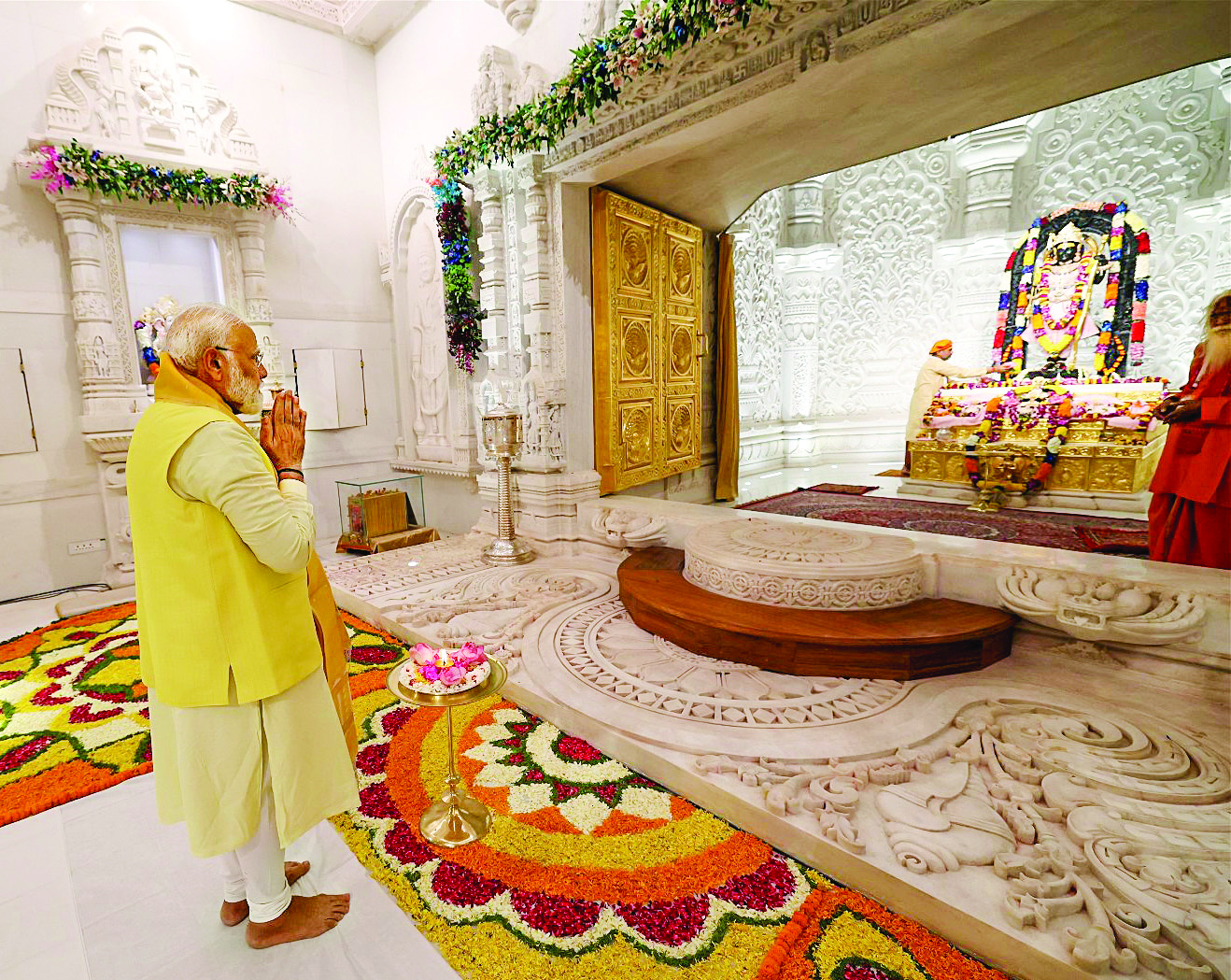The PM has been unflinching in his commitment to his belief system, shedding the cloak of hypocrisy and denigration that concealed being Hindu.
One of the more salient contributions of Prime Minister Narendra Modi and his leadership has been the redefinition of India’s cultural narrative by infusing it with a renewed sense of pride and global relevance. His decade-long tenure is footnoted with an emphasis on celebrating India’s diverse and ancient traditions. He has seamlessly infused his international outreaches with cultural diplomacy.
In the post-Independence era, India grappled with a colonial hangover, intensified by a “brown sahib” culture that impacted the education system and public discourse. All things Hindu were considered backward and regressive, and true growth was a race against ancient beliefs, a constant marathon, wherein a nation was trying to outrun its glorious past, one that had been vilified and denigrated for centuries. We were all in that race, without realising it, in our own way, we attempted to shed all that made us Bharatiya.
And this psychological moulding started at a young age. Our school textbooks were filled with the “legends” of glorified foreign invaders and the colonial “contributions” to India by the British. It employed downplaying India’s rich tradition and achievements long before the so-called “civilising” intervention of foreigners. The glories of ancient knowledge systems and universities like Nalanda, which were extolled by Chinese scholars in their writings thousands of years ago, were lost and we were left looking at the Harvards of the world for intellectual validation. We had lost a lot more than freedom, we had lost our identity.
The first post-Independence Prime Minister, also one from an OBC background, PM Modi has a keen sense of this lack of self-esteem as a consequence of sustained marginalisation and oppression, a generational wound that had festered through the centuries. This wasn’t merely a question of pride that can be easily manufactured. This was a negotiation with a deeper understanding of the cultural self, so integral to national integrity and identity. As the saying goes, “If you don’t know where you come from, you will never know where you are going”.
And India was on its way, but first it had to discover Bharat.
A Vikas that was not only of the nation’s infrastructure but of its cultural psyche. The departure from the past was evident from the very beginning, when Prime Minister Modi performed the Ganga Arti in Kashi, after being elected Prime Minister. There was predictable criticism, but the PM was unflinching in his commitment to his belief system, shedding the cloak of hypocrisy and denigration that concealed being Hindu. Remarkably, this was a departure from the first Prime Minister—Pandit Nehru was apathetic of his faith and consciously westernised, thinking of culture as an impediment to progress. With Modi, India was turning the page on its post-colonial identity and the self-deprecation of our ancient civilization and wisdom. Our ancient culture was now to be viewed as a contributor—one that was to be acknowledged, not erased. It was in many ways a coming of age, a break from the tentacles of a parasitic dependence on old masters for validation and acceptance. Ten years on, this steady path has made India a leader and prominent voice in the Global South, with PM Modi being viewed as an elder statesman and guide for many post-colonial nations.
When so many of our ancient knowledge systems were lost to invasion of the land and psyche, PM Modi has made an assertive push to preserve and promote ancient languages like Sanskrit and Pali amongst others, to ensure that the process of digitization, translation and study will ensure the accessibility of India’s intellectual heritage to future generations. Institutions like the Indian Institute of Technology (IIT) are increasingly integrating ancient knowledge systems with modern science, displaying India’s timeless contributions to global knowledge. This is but one consequence amongst numerous of the trickle-down impact of this unapologetic approach. It has always amazed me that Indonesia, a Muslim majority country, unflinchingly calls its national carrier Garuda, the winged vahan of Lord Vishnu.
A decade post his election to the highest office in the land, it is clear that PM Modi’s vision for India extends beyond economic
PM Modi’s leadership underscores the timeless relevance and resilience of India’s cultural legacy, ensuring it continues to inspire and influence generations worldwide. His efforts stand as a beacon for a country reclaiming its identity, breaking free from the shadows of colonialism, and marching confidently towards a culturally enriched future. And also as an example of a civilization that embraces the world.
* Advaita Kala is an author and award winning screenwriter.

